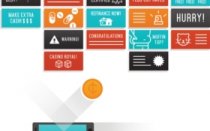 On the Internet, ads are a real problem.
On the Internet, ads are a real problem.
They're a problem for us, the people, and not just because they clutter up our Web pages; they also cost us money (in mobile data charges), battery life and time. As much as 79 percent of the time it takes for a news Web site to load on your phone is waiting for the ads to arrive, according to a New York Times analysis.
Surprisingly, they're also a problem for advertisers and Web sites. Suddenly the popularity of ad-blocking software has reached a tipping point. According to a study by Adobe and PageFair (which offers anti-ad-blocking services), 41 percent of adults younger than 30 use these blockers. Overall, ad-blocker installations are up 48 percent in a year—and that was before Apple began approving ad-blocking apps for the iPhone and iPad last September, marking the first time ad blocking has come to the mobile world in a huge way.
The thing is, most of those free articles, videos and services you enjoy are brought to you by the advertising. If you're not seeing the ads, then the central financial transaction of the online content economy collapses. What then?
Some Web sites appeal to visitors directly, asking you to view the ads. Last summer Wired.com's home page said, “Please do us a solid and disable your ad blocker.”
Other sites simply turn you away if you have an ad blocker installed. The sites for leading U.K. broadcasters Channel 4 and ITV present a dark screen and a simple declaration to the effect of: “We are now preventing ad-blocked access.”
Enter ad-blocker-blocking technology—Web software that tries to fool the ad blockers so that the ads appear despite your blocker. Some companies that operate ad blockers even accept money from large advertisers, although they deny giving ads from those companies special treatment.
But these tactics treat the public as the enemy. They create a technology arms race. “You will see our ads, like it or not!”
Advertising executives may tell you, upon rising from yet another sleepless night, that one solution may be native advertising: ads dressed up as articles. Although they represent the advertiser's interests, they're displayed as actual stories or videos rather than splashy ads, so they pass through ad blockers. These can lead to some murky territory, however, blurring the line between traditional content and that aiming to sell you something.
So tech utopians like me wonder why the answer isn't micropayments. You know, instead of looking at ads, you're automatically billed a few cents for each article you read or video you watch. In our hearts, we know that somebody has to pay for all that Web goodness. If the micropayments were cheap and easy, couldn't they make all parties happy?
Unfortunately, we've already tried that. In the late 1990s and early 2000s a bunch of companies tried to invent micropayment systems; all of them failed.
To find out why, I tracked down the CEOs of some of the start-ups, who have all moved on to other endeavors.
“Micropayments sound great on paper, ” former BitPass CEO Douglas Knopper told me. “But in practice, they require four things for the consumer that are hard to pull off: simplicity, ubiquity, security—and it has to be free. The economics to the retailer don't work, because there are too many middlemen—credit-card processors, etc. So until someone figures out how to crack the code ... micropayments aren't going to get any traction.”
The timing was wrong, too. Charles Cohen, founder of failed micropayment company Beenz, told me that these efforts mostly died “because the dot-com bubble burst, and most of the companies who were accepting and issuing our microcurrency went up in a puff of smoke.”
So micropayments may face an uphill battle, but there aren't any screamingly obvious reasons why they couldn't work now. It seems Web companies would be happy to get out of the ad-blocking arms race, while Web users, well, we wouldn't mind paying a few cents here and there to never encounter another intrusive banner ad or slow-to-load video ad. As Kurt Huang, co-founder of BitPass (R.I.P.), puts it, “Micropayments could indeed make a comeback.”












 At BeatPick.com you can listen to entire albums/tracks for free. We do not use DRM. Purchased music is compatible with all computers, ipods and Mp3 players.
At BeatPick.com you can listen to entire albums/tracks for free. We do not use DRM. Purchased music is compatible with all computers, ipods and Mp3 players.